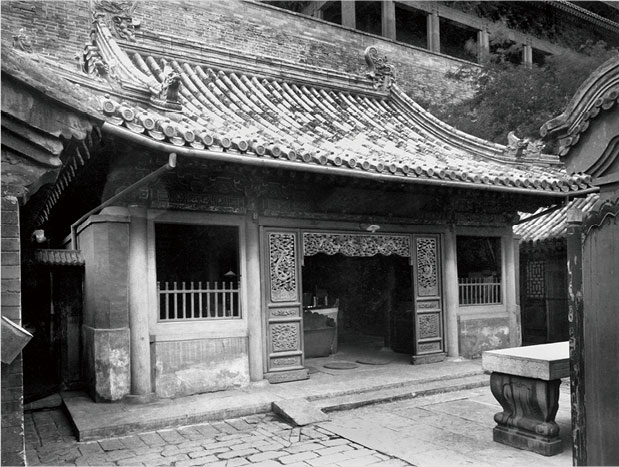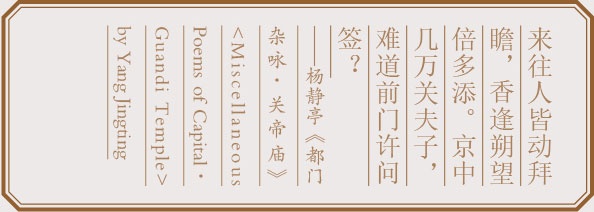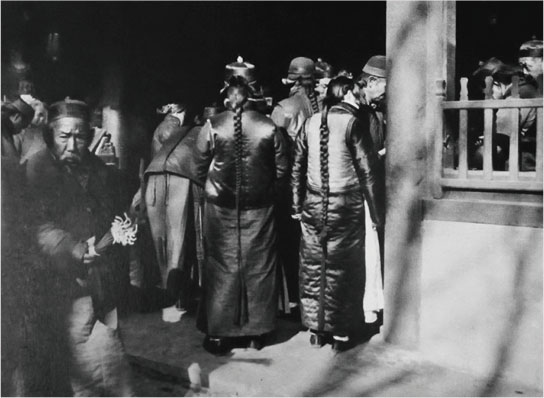在明清留下的寺庙中,所占比例最大的不是佛教的,也不是道教的,而是关帝庙。关帝庙的叫法非常丰富,如关王庙、伏魔庙、汉寿亭侯庙等,但一般老百姓却亲切的称为“老爷庙”。据说明成祖朱棣“靖难”成功和建都北京城,都得到过关公的护佑,因此在明成祖重建北京城时,在各城门的瓮城里都建造了关帝庙,并且庙内塑有绿袍红脸、长髯的关羽神像。
Among the temples preserved from Ming and Qing dynasties, the most popular was neither Buddhism nor Taoism Temple ,but Guandi Temple .There were diversified calls for Guandi Temple, including Guanwang Temple, Fumo Temple, Hanshoutinghou Temple and so on. In general, the ordinary people called it as "Laoye Temple". According to the legend, the Chengzu Emperor Zhu Di in Ming Dynasty succeeded by"Jingnan Campaign"and built a new capital in Beijing, all of his success were blessed by Lord Guan. Therefore, when Chengzu Emperor rebuilt capital Beijing , he proceeded to build Guandi Temples in the Barbicans . Besides, red-face Lord Guan with long beards and green uniform were sculptured in the temples.


正阳门关帝庙规格最高,香火也最盛。每到农历初一、十五,前来进香的人络绎不绝,每年农历五月十三的关老爷“磨刀”日和六月二十四的关老爷诞辰日更是香烟缭绕,盛况空前。
Lord Guan temple of Zhengyang Gate was the largest scale, and there were more worshipers than others. On every lunar January 1st and 15th, a continuous stream of pilgrims came here . In addition, lunar May 13th was known as"Sharpening"day of lord Guan, and also lunar June 24th was his birthday. At that moment, the smoke of incense rose in the temple, an exceptionally grand occasion appeared.
